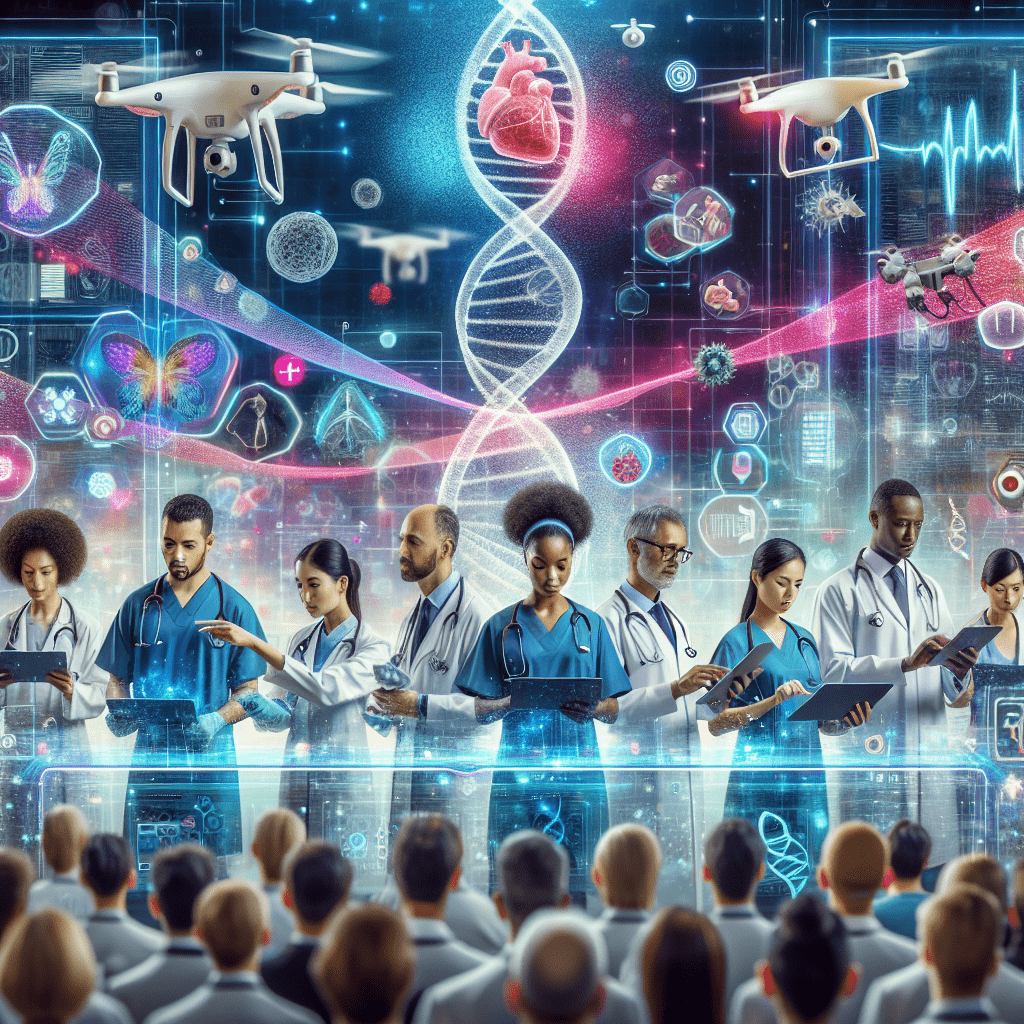Advancements in technology have significantly impacted the healthcare industry, with artificial intelligence (AI) emerging as a game-changer. AI has the potential to revolutionize the way we diagnose, treat, and manage medical conditions, leading to more personalized and efficient healthcare services.
How AI is Transforming Healthcare
AI is being utilized in various aspects of healthcare, including:
- Diagnosis: AI-powered systems can analyze medical images, such as scans and X-rays, to detect abnormalities and assist in diagnosing conditions.
- Treatment: AI algorithms can help personalize treatment plans by analyzing patient data and recommending the most effective course of action.
- Health monitoring: Wearable devices equipped with AI technology can track vital signs and alert users and healthcare providers of any anomalies.
- Predictive analytics: AI can analyze large datasets to predict disease outbreaks, identify high-risk patients, and optimize resource allocation.
The Benefits of AI in Healthcare
There are several advantages to incorporating AI into healthcare:
- Improved accuracy: AI systems can analyze vast amounts of data quickly and accurately, reducing the margin for error in diagnosis and treatment.
- Increased efficiency: By automating routine tasks, AI can free up healthcare professionals to focus on more complex and critical aspects of patient care.
- Personalized medicine: AI can help tailor treatment plans to the individual patient, taking into account their unique genetic makeup, lifestyle, and medical history.
- Cost savings: AI-driven healthcare solutions can streamline processes, reduce unnecessary tests and procedures, and optimize resource utilization, leading to cost savings for providers and patients.
Challenges and Considerations
While the potential benefits of AI in healthcare are vast, there are also challenges to overcome:
- Data privacy and security: AI systems rely on vast amounts of sensitive patient data, raising concerns about privacy and the security of personal information.
- Regulatory approval: The use of AI in healthcare requires regulatory approval to ensure that AI-powered solutions meet safety and efficacy standards.
- Ethical considerations: AI algorithms may introduce bias or discrimination in healthcare decision-making, highlighting the need for ethical guidelines and oversight.
- Integration with existing systems: Incorporating AI into existing healthcare infrastructure can be complex and challenging, requiring seamless integration and compatibility with existing technologies.
The Future of Medicine with AI
Despite these challenges, the future of medicine with AI looks promising. Continued advancements in AI technology, coupled with ongoing research and collaboration between healthcare professionals, technologists, and policymakers, will drive innovation and transformation in healthcare delivery.
Conclusion
Artificial intelligence is reshaping the healthcare landscape, offering new possibilities for diagnosis, treatment, and patient care. As AI continues to evolve and mature, its integration into healthcare systems will pave the way for improved outcomes, increased efficiency, and better patient experiences.
FAQs
Q: How does AI improve diagnosis in healthcare?
A: AI-powered systems can analyze medical images and patient data to identify patterns and abnormalities that may not be apparent to human observers, leading to more accurate and timely diagnoses.
Q: Is AI replacing human doctors?
A: While AI can assist healthcare professionals in diagnosing and treating patients, it is not intended to replace human doctors. AI is meant to complement human expertise by providing additional insights and support for decision-making.
Q: What are some examples of AI in healthcare?
A: Examples of AI Applications in healthcare include robot-assisted surgery, predictive analytics for disease prevention, virtual health assistants for patient engagement, and personalized treatment recommendation systems.
Quotes
“The integration of artificial intelligence into healthcare has the potential to revolutionize patient care and drive better outcomes for individuals and communities.” – Dr. Sarah Johnson, Chief Medical Officer
#Future #Medicine #Transforming #Healthcare


